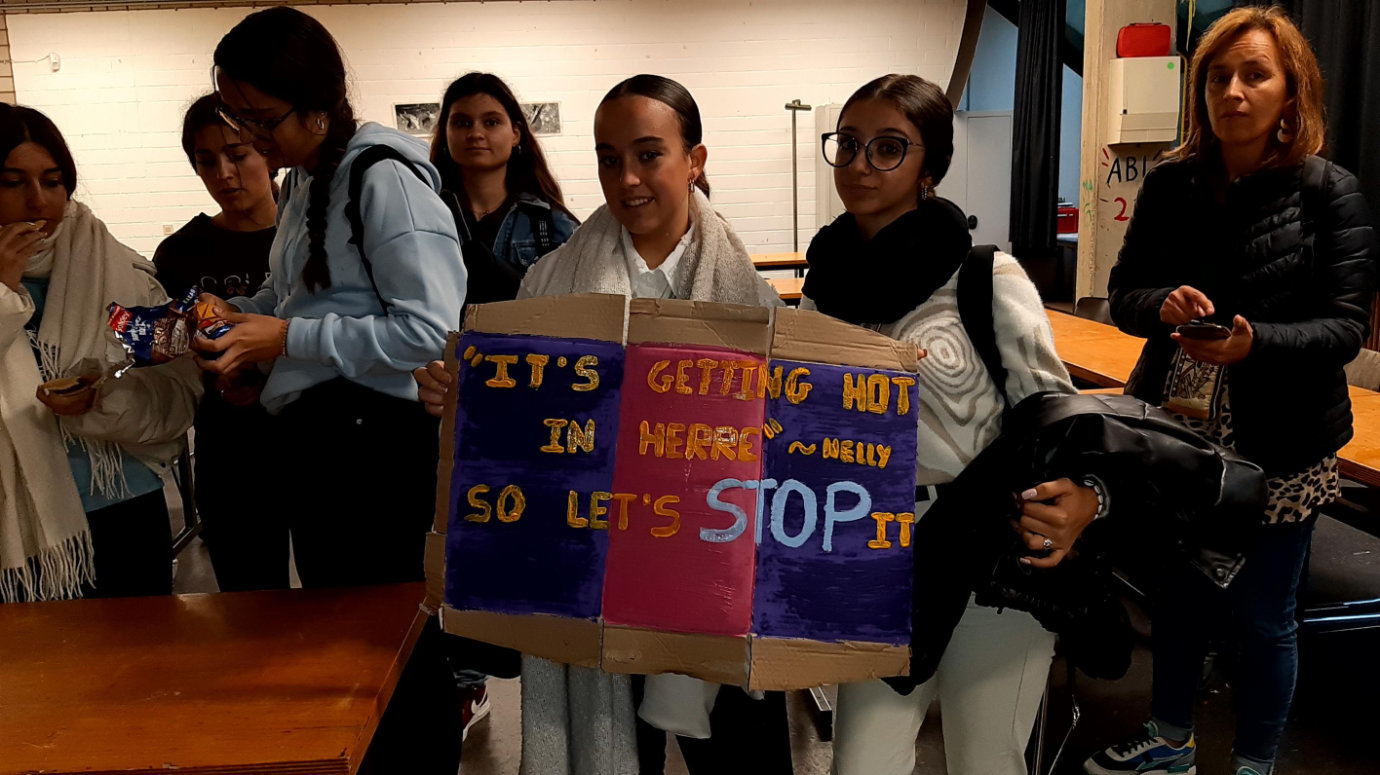Day 5: A demonstration against climate change
29/11/2023


With the slogan "We are here, we are loud, because you are stealing our future", all participants finally chanted through the school to draw attention to global warming full of energy.
To round off an intensive Erasmus week, all delegations visited the Aquazoo Löbbecke Museum in Düsseldorf. Here, the students gained insight into the diversity of species scattered around the world, but also how different species have become extinct over the centuries - or have (continued to) evolve to this day.
One of the highlights was certainly the opportunity to stroke a live king anaconda. Some of us actually showed the courage to touch this terrifying animal.
Don't panic: Everything turned out well.
These spectacular close-up experiences rounded off a wonderful but equally exhausting week in a satisfying way. The consequences of global warming are becoming more acute and will continue to occupy us to a great extent.
[#gallery view:gallery path:/medien/2023-2024/2023_11_29_erasmus-tag5/]
Tag 5: Eine Demonstration gegen den Klimawandel
Am Freitagmorgen ging es kreativ zu, um auf die aktuelle Klimakrise aufmerksam zu machen, indem man Demonstrationsplakate aus Abfall erstellte. In internationalen Gruppen hatten sie die Aufgaben, sich zunächst mit der Bedeutung verschiedener deutscher Demonstrationsslogans auseinander zu setzen, zu bewerten und im Anschluss selber Slogans zu entwickeln bzw. auf die selbst entwickelten Poster zu bringen.
Mit dem Motto „Wir sind hier, wir sind laut, weil ihr unsere Zukunft klaut“ skandierten letztlich alle Teilnehmer durch die Schule, um voller Energie auf die globale Erderwärmung aufmerksam zu machen.
Zum Abschluss einer intensiven Erasmus-Woche besuchen alle Delegationen das Aquazoo Löbbecke Museum in Düsseldorf. Hier bekommen die Kinder einen Einblick in die Artenvielfalt, welche sich zerstreut auf der ganzen Welt befindet, aber auch wie unterschiedlichste Arten über die Jahrhunderte ausstarben – oder sich bis heute (weiter-) entwickelt haben.
Ein Highlight ist sicherlich, dass man die Möglichkeit bekommt, eine lebendige Königsanakonda zu streicheln. Einige von uns haben tatsächlich die Courage gezeigt, dieses furchteinflößende Tier anzufassen.
Keine Panik: Alles ist gut ausgegangen.
Diese spektakulären Hautnah-Erlebnisse runden eine schöne, aber genauso anstrengende Woche zufriedenstellend ab. Die Folgen der globalen Erderwärmung werden akuter und werden uns weiterhin in einem hohen Maß beschäftigen.